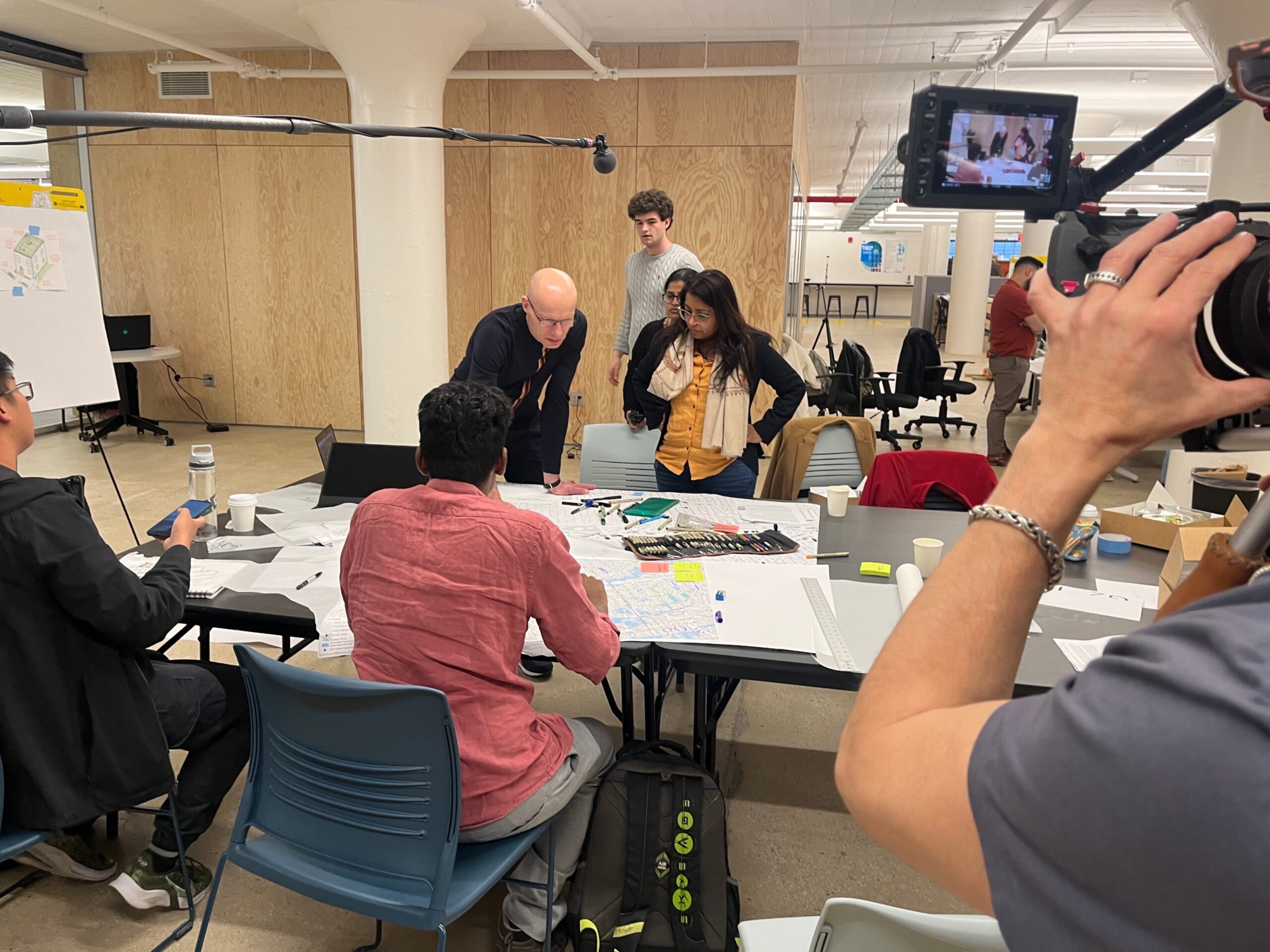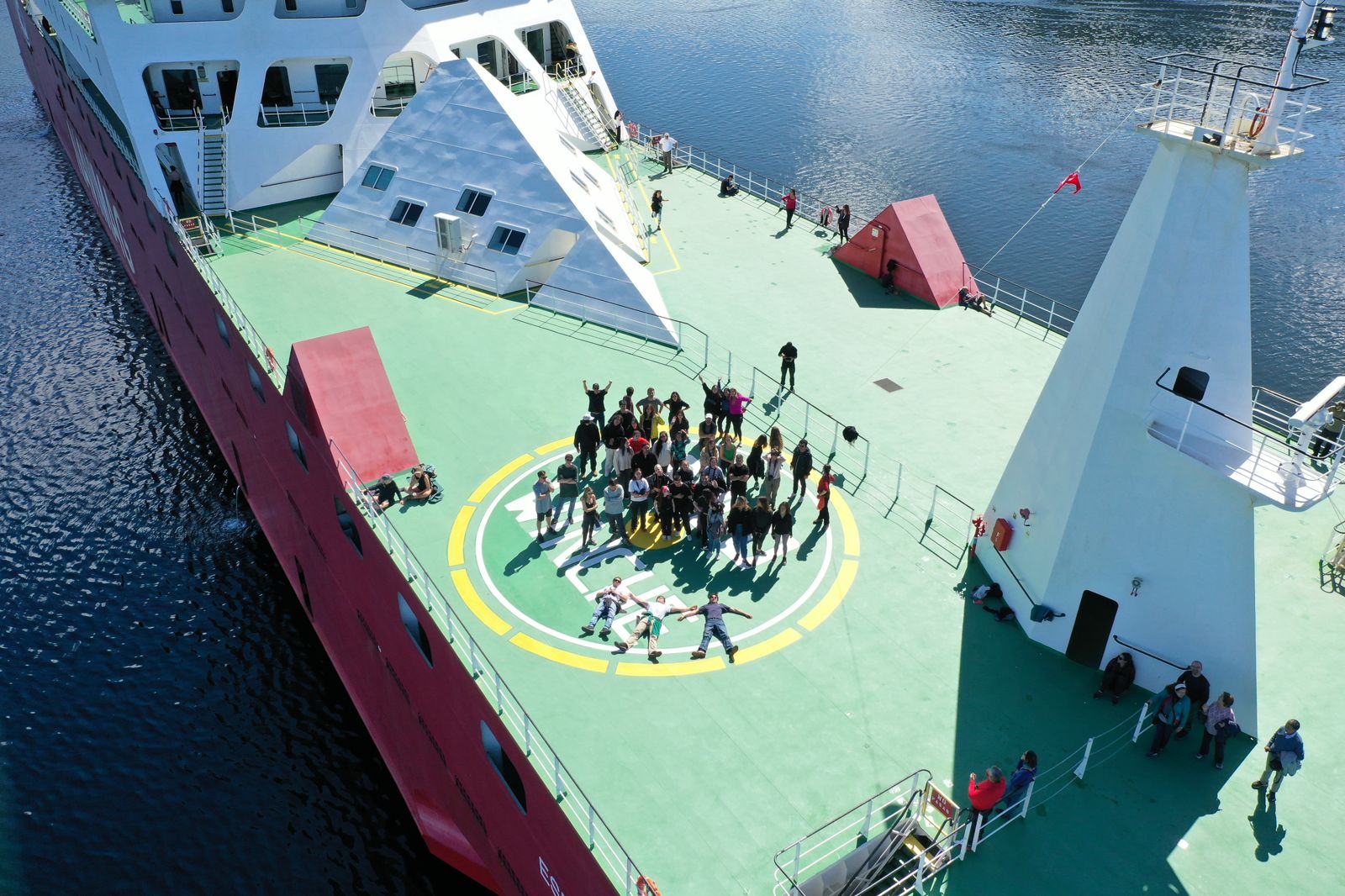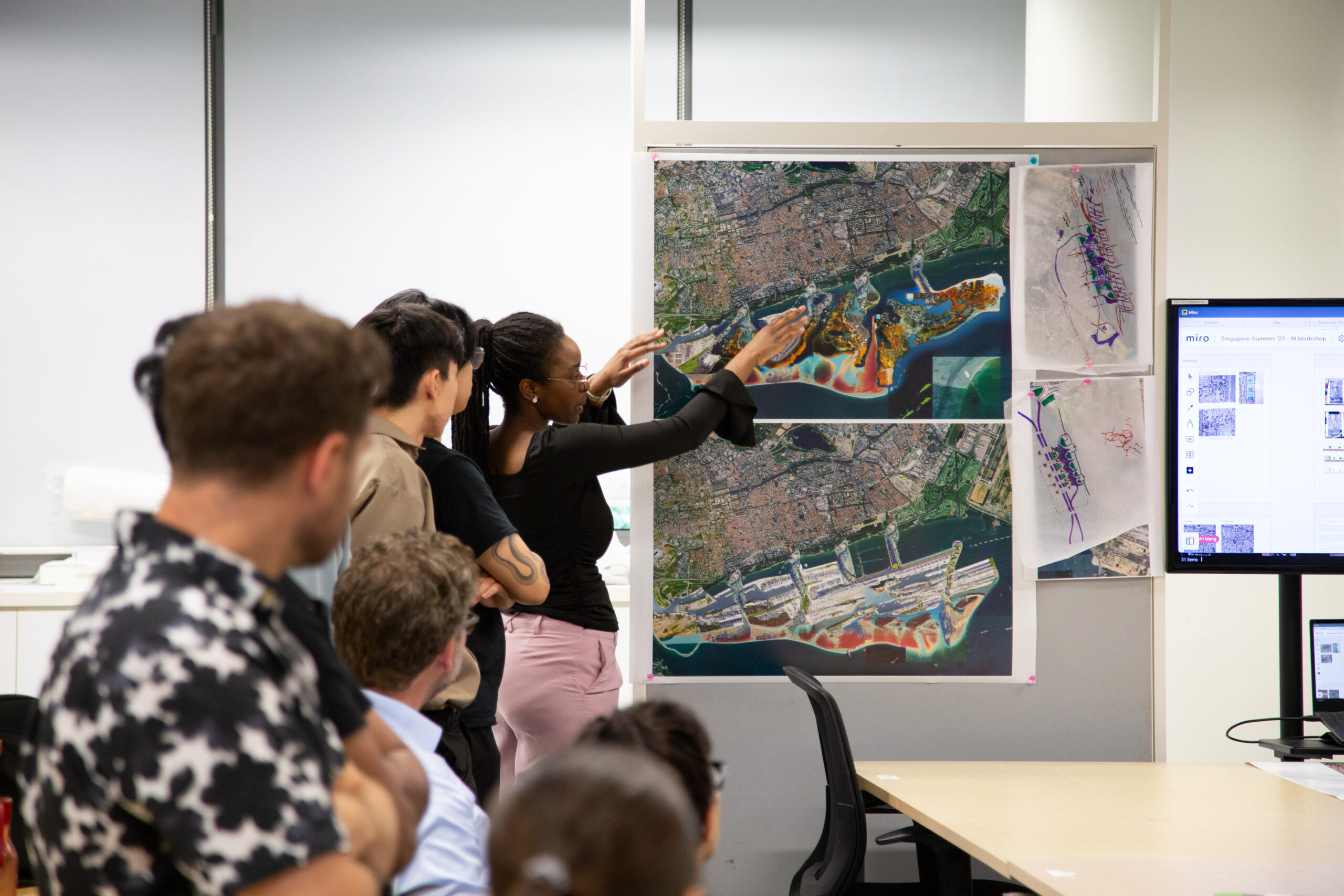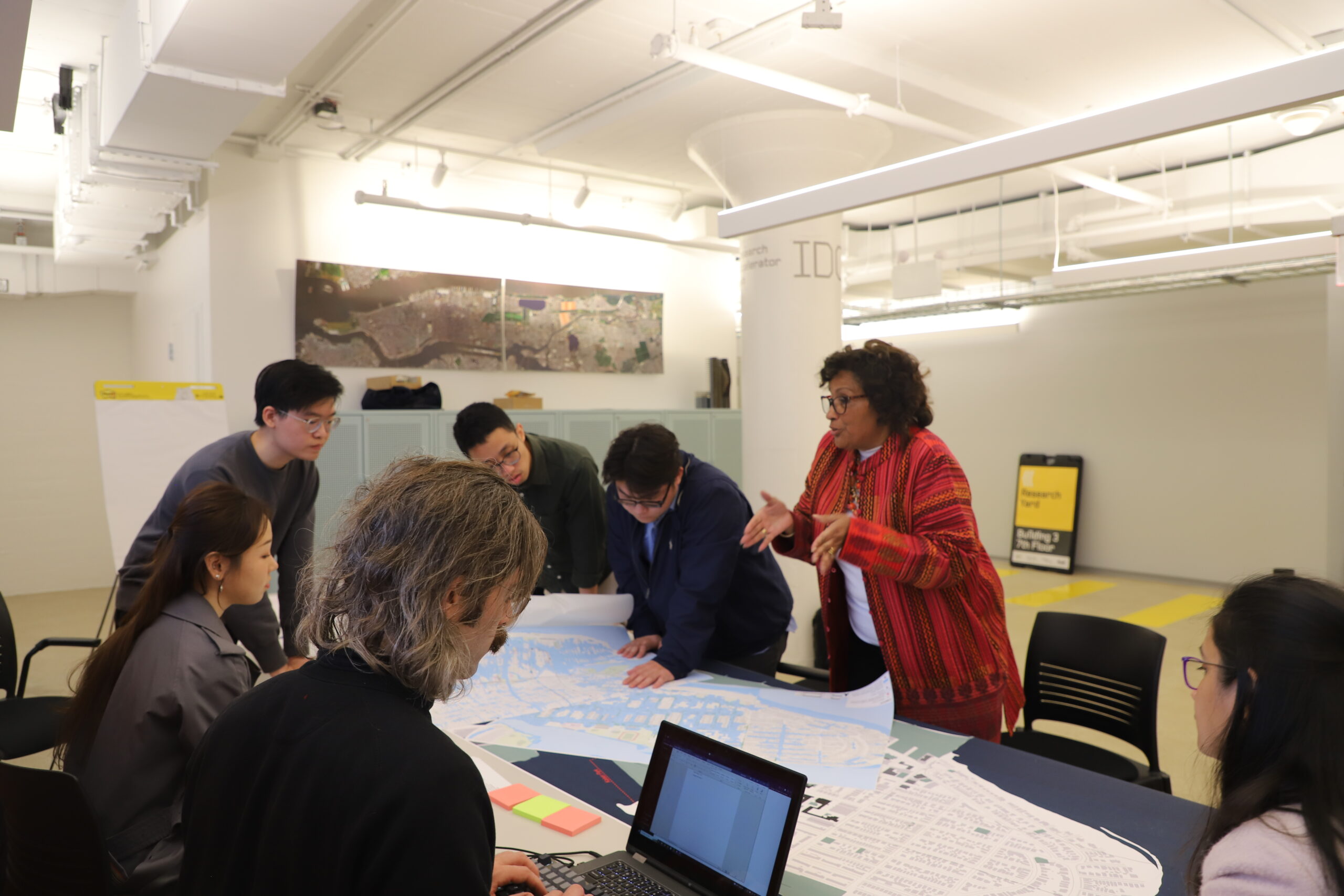Pratt Institute’s newly established Center for Climate Adaptation (CCA) is developing research and design-based solutions to advance global climate adaptation, innovation, and literacy in response to the increasing climate impacts threatening communities worldwide. The Center grew out of Pratt’s commitment to sustainability and collaboration between institutions, community groups, and industry partners working on adaptation measures in archipelagos and takes inspiration from the United Nations’ Archipelago Agenda, which views island cities on the front lines of the climate crisis as bellwethers for the future of the planet.
The Center is led by David Erdman, an award-winning architectural designer and associate professor in Graduate Architecture and Urban Design (GAUD), and is closely aligned with The New York Climate Exchange, a non-profit world-class climate center on Governors Island of which Pratt is a founding partner. Over the past year, the Center has embarked on climate research projects, held public events, and engaged in knowledge-exchanges with international universities, providing research and learning opportunities for hundreds of students.
“The new Center for Climate Adaptation embodies what distinguishes Pratt Institute as a world-renowned academic institution committed to civic and environmental justice in design, architecture, research, and planning,” said Pratt President Frances Bronet. “The Center combines our deep engagement with the local community and global networks, and our collaborative approach to critical research across disciplines. With our longstanding commitment to developing community-driven solutions, we are excited to expand our climate action work with partners through this new Center and bring our research to help further shape The New York Climate Exchange.”


Together with standing academic partners at Singapore University of Technology and Design (SUTD) and Pace University (NYC), a recent partnership with Anant National University (Ahmedabad, India), a prospective partnership with Universidad del Desarrollo (Santiago, Chile), and industry partnerships with Arcadis (US) and Inhabit Group/ Egis, the Center is building a coalition of researchers across fields of architecture, landscape architecture, urban design, infrastructure design, and communications design focused on technologies and methods for withstanding land, water, and resource scarcity.
“This is very exciting news, dramatically increasing the type of expertise available to address climate adaptation and resilience issues in New York City and globally,” said Dr. Stephen Hammer, CEO of The New York Climate Exchange. “Pratt is a key partner to The New York Climate Exchange, and we will definitely capitalize on their solutions-focused approach aimed at protecting individual livelihoods and community well-being. This is a big gap and will serve as an important model for Exchange programming.”
By the middle of the century, two out of every three people will likely live in cities and urban archipelagos will account for half of the fastest growing cities. The UN urges governments to commit half of all climate investments to adaptation for communities in both urban and rural areas. By using archipelagos like New York and Singapore as a springboard for research, the Center has an opportunity to develop highly local projects that have global reach.
“Our institutions of higher education with their research and education, theoretical and applied, tested and scaled, are the levers for the change we seek,” said Henk Ovink, executive director of the Global Commission on the Economics of Water. “CCA is visionary in its focus on how to live with climate change and in targeting vital amphibious regions like the Patagonian and Malay Archipelagos to test and demonstrate blue-green solutions. The Founding Director David Erdman has begun to build coalitions between SouthEast Asia, South America and North America. These bridges between design, law, science and policy are a testament to Pratt’s commitment and leadership to provoke and act now.”
The Center operates under the Office of the Provost alongside the Center K-12, the Pratt Center for Community Development, and the Spatial Analysis & Visualization Initiative (SAVI) at the Research Yard, a 20,000-square-foot facility in the Brooklyn Navy Yard that houses Pratt’s research centers and research accelerators, and will draw on the full range of Pratt’s schools to accomplish its goals.
Early and ongoing projects of the Center include studies of island infrastructure, adaptive reuse, energy-efficient construction, and water supply management in New York, Patagonia, and Singapore.

The Center partnered in 2023 with the UN Water Conference and Climate Week and has plans to build on these events in the year ahead at Singapore International Water Week with CCA’s partners in Singapore, and Climate Week 2024 which will overlap with the UN Summit of the Future in NYC.
The Condensations and Adaptations events series brought together international institutions of higher education to explore issues of water safety, access, quality, and delivery in dense urban areas. The Center has also co-hosted trips to Patagonia in Chile to study gray water capture in timber buildings with its partners at the Universidad del Desarrollo, meet with local officials and stakeholders, and use drones and artificial intelligence to better understand island resources, behaviors, opportunities, and challenges.
Planned exhibitions in the Nolan Park House on Governors Island throughout the year and the upcoming Pratt Research Open House on March 8 will provide opportunities for the public to learn about urban archipelagos and the work being done at the Center.
